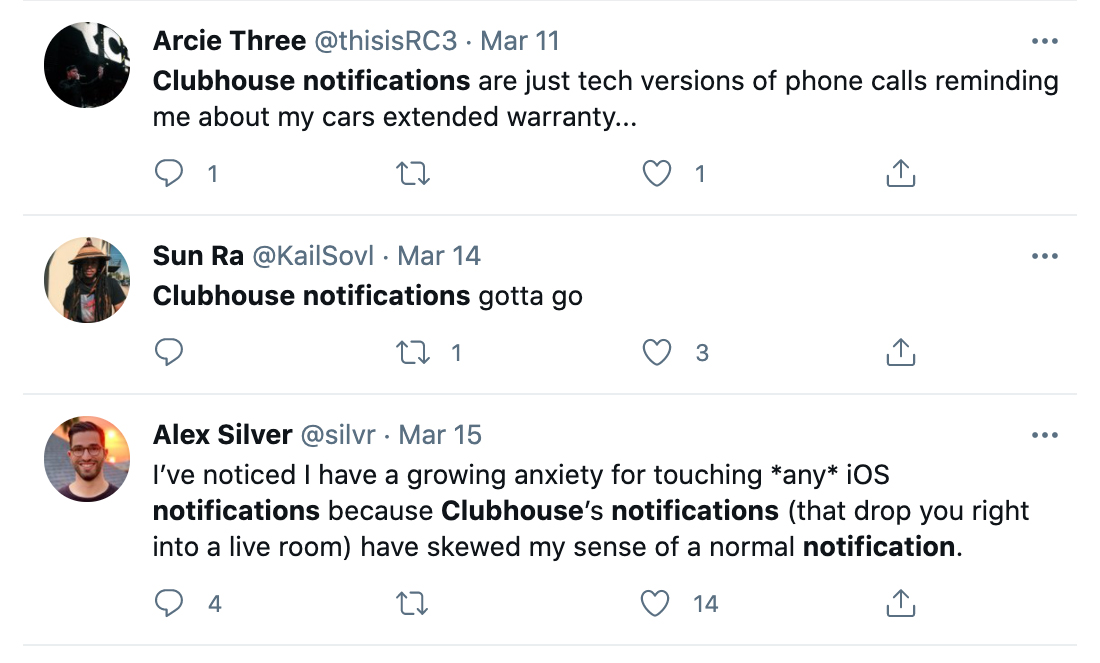What the NCAA March Madness Live App Can Teach Clubhouse About Self-Sustained Engagement
If 'Turner Sports vs. Clubhouse' appeared on a tourney bracket for mobile marketing excellence, which one would you pick?

The smarter way to stay on top of broadcasting and cable industry. Sign up below
You are now subscribed
Your newsletter sign-up was successful
It’s that time of year again: the NCAA Men’s College Basketball Tournament is underway with its early slam dunks and buzz-beaters in the books and the 64 teams have winnowed down to eight. When the action resumes tonight (March 30), millions of users of NCAA March Madness Live mobile app will be glued to the minute-by-minute action. The one thing the app won’t do: Hitting users with a notification every single time there’s a game development. Instead, it gives users a bevy of alert options, allowing for a self-curated customer experience (CX) that every brand should strive for in the 2020s.
Conversely in the mobile space right now, we have the intriguing case of Clubhouse, an invite-only app for live audio group discussions that has rapidly grown to more than 10 million users after only having two million as recently as January. The startup is not only buzzy for its hockey-stick growth and fascinating audio platform — which has attracted celebrities as well as everyday people — it’s also become a media topic due to over-pinging its users with notifications.

Many Clubhouse users are clearly not enjoying the alerts, and — as a user for the last couple of months — I can attest to getting overwhelmed myself with irrelevant interruptions. I suggest that Clubhouse learn from the team managing the March Madness Live app (Turner Sports in partnership with the NCAA and CBS Sports) about how to delight users with app notifications the right way.
The right fundamentals
Turner Sports doesn’t want to put a full-court press on basketball fans with constant -- and potentially irrelevant -- alerts. The March Madness Live preference center gives users notification options for game updates, bracket alerts specific to users’ picks, top news, and the schools involved in the tourney. The last feature is a nice showcase for relevancy and granularity: Turner Sports actually lets folks select alerts for each of the 68 teams with a single tap of the phone. What's more, the March Madness Live app utilizes an "Excitement" algorithm to determine when games are getting nail-biting close or poised for upsets, and also combines it with fans' bracket selections, to alert them thrilling final minutes of a game and which outcomes may impact their bracket ranking. (More on the Airship role in the alerts here.) That is Final Four-level engagement, right there!
These kinds of specific choices are why in 2019—the last time the NCAA Tournament was played due to the pandemic—a single Excitement notification drove considerable minutes of mobile live stream viewing. In ‘19, across mobile and desktop, the NCAA had more than 100 million live streams, a 31% jump from the previous year. It’s no wonder major brands like AT&T 5G, Capital One, Coca-Cola, Buick and Nissan are sponsoring March Madness Live this year on the iOS and Android versions of the app.
In fact, CBS Sports and Turner Sports have notched record-breaking ad sales for this year’s March Madness. I’m sure Clubhouse, which likely wants to become a full-fledged social network, would want to sell advertising to such formidable brands. After all, the burgeoning startup hired Netflix marketer and ad industry veteran Maya Watson earlier this month as head of global marketing.
How Clubhouse can improve its alerts game
The smarter way to stay on top of broadcasting and cable industry. Sign up below
Clubhouse’s notifications center does allow users to choose general topics for notifications like Venture Capital, U.S. Politics and Comedy. Also, users can select whether they want to get notifications on the following basis: Very Frequent, Frequent, Normal, Infrequent or Very Infrequent. However, the app does not let users know what those frequency choices mean for the number of alerts they’ll receive.
Clubhouse marketers and developers should go a few steps further by setting up a preference center with more specific options for topics and personalities. For instance, if automotive fans only care to listen in when Tesla is the main topic, they should be able to set their preferences so they only get a notification for those sessions. And if users just want notifications when certain people such as music star Drake, Facebook CEO Mark Zuckerberg, comedian Tiffany Haddish or futurist-author Malcolm Gladwell show up to an audio event, then that’s all they should get. The Wall Street Journal already does this with email and app notifications. WSJ online viewers can sign up for alerts for not only individual scribes like sportswriter Jason Gay and articles about popular topics like wine or singular companies like Goldman Sachs, but also subjects as narrow as when it offers a new puzzle for subscribers to solve.
Indeed, some consumers are WSJ devotees just for the puzzle alerts. Talk about a self-curated experience at a championship level!
Winning the future
The good news is, it’s still the first round for Clubhouse. It has already changed up its growth playbook after feedback, and its exclusivity and excitement may forgive some notification transgressions for now.
However, every single message contains an embedded, two-tap process to enable quiet delivery or turn off notifications altogether — either of which would be disastrous to Clubhouse’s entire model of connecting people for live discussions. It will be particularly interesting to watch how the impressive hiring of Maya Watson impacts the app’s notifications approach because her previous employer, Netflix, is justifiably renowned for delivering personalized experiences. That’s not to say Clubhouse should copy Netflix. The white-hot startup needs to find out what options are right for its audience through experimentation and A/B and multivariate testing.
Clubhouse should also take a page out of the Turner Sports mobile playbook when it comes to granular preference centers and data-driven innovations to better serve their audience. As UCLA coaching legend John Wooden, who won 10 championships, once said, “Always learn from others and never cease trying to be the best you can be.”
Bernardo de Albergaria is Chief Commercial Officer at Airship, a mobile-first marketing automation platform that helps brands better serve customers throughout their cross-channel journeys.
Chief Commercial Officer at Airship
